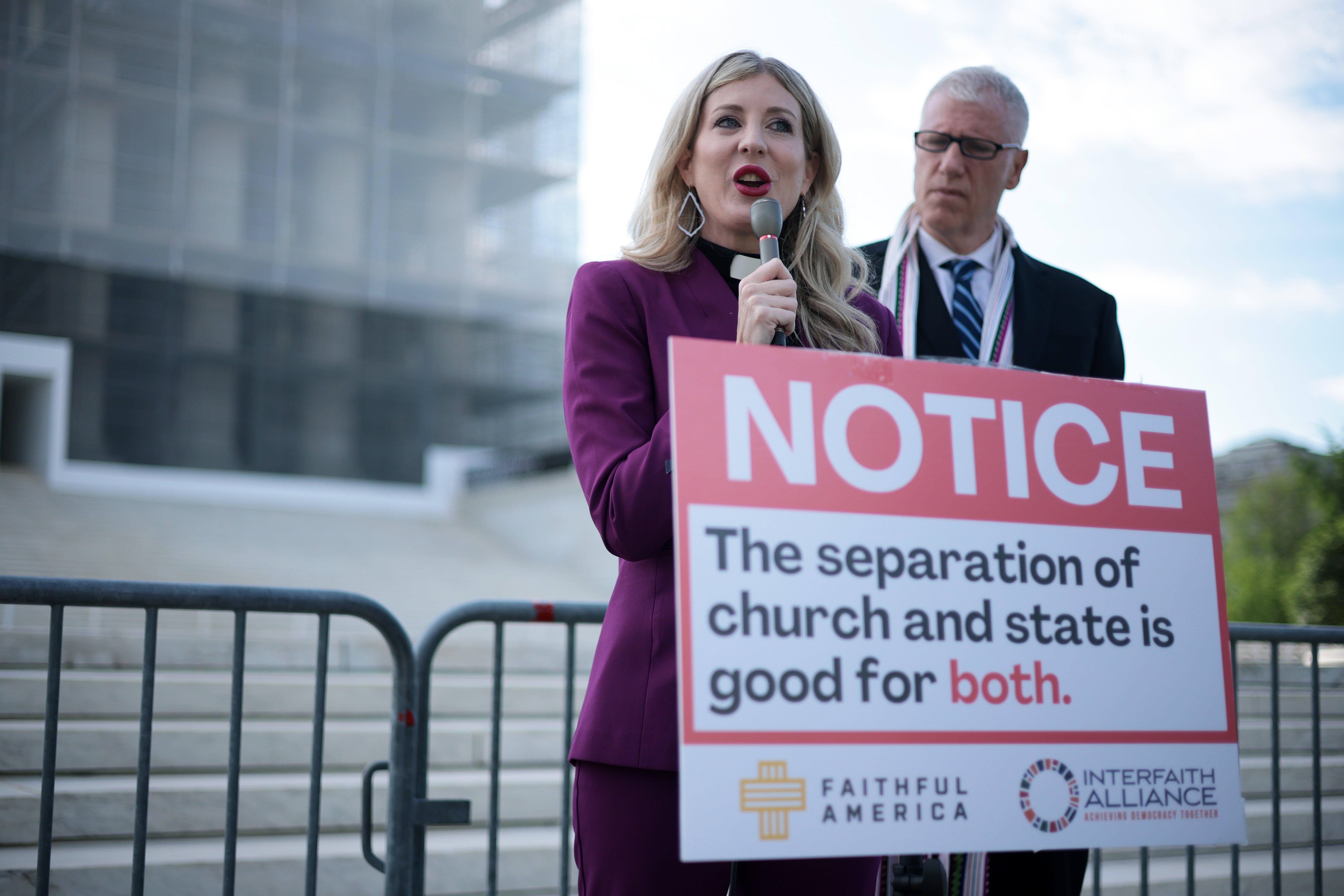Oklahoma won’t be able to open the country’s first-ever taxpayer-funded religious public charter school after a surprise tie from the Supreme Court.
A 4-4 decision, with conservative Justice Amy Coney Barrett recusing, avoids a major ruling on First Amendment protections and the separation of church and state.
There was no written decision. A single-page announcement of the court’s tie did not note which justices voted in support or against the state.

The court did not explain Barrett’s recusal, but the Donald Trump-appointed justice has tied with Notre Dame Law School, where she earned her law degree. The law school’s religious liberty clinic represents the charter school in this case.
A lack of a decision means lower court decisions against the St. Isidore of Seville Catholic Virtual School will stand, with the school violating the Constitution and state law.
The school, backed by Oklahoma’s Republican Governor Kevin Stitt, triggered a high-profile legal battle to decide whether public funds can be used to create religious schools, setting up a major test to the First Amendment’s establishment clause, which prevents the government from endorsing any religion, as well as the free exercise clause, which bars religious discrimination.
Oklahoma’s schools, under the direction of controversial superintendent Ryan Walters, have emerged as a testing ground for a growing movement to integrate religion and conservative politics into public education.
Last year, Oklahoma’s highest court said the school’s contract would “create a slippery slope and what the framers’ warned against — the destruction of Oklahomans’ freedom to practice religion without fear of governmental intervention.”
The school is an “instrument of the Catholic church, operated by the Catholic church, and will further the evangelizing mission of the Catholic church in its educational programs,” state justices wrote.
A decision on Oklahoma’s proposal follows a wave of attempts from Republican lawmakers and conservative special interest groups to move public funds into religious education, dovetailing with efforts within the Trump administration and across the country to let families use taxpayer funds to send their children to private school.
In 2023, the nation’s highest court ruled that the state of Maine cannot exclude private Christian schools from a taxpayer-funded school voucher program that helps students attend private schools, which critics feared could have broader implications over whether the government is obligated to support religious institutions on the same level as private ones.
Justice Sonia Sotomayor’s dissent in that case warned that the Supreme Court “continues to dismantle the wall of separation between church and state that the Framers fought to build.”
“The consequences of the Court’s rapid transformation of the Religion Clauses must not be understated,” she wrote at the time.



